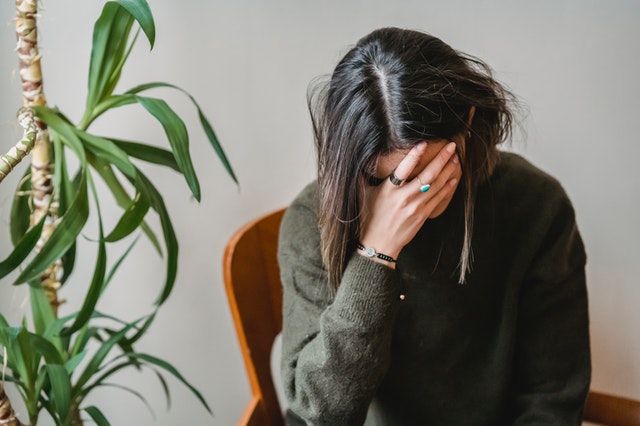It’s normal to feel anxious sometimes. While therapeutic and medical treatments are useful, it’s also helpful to understand how lifestyle changes and techniques can calm you down during an anxious moment. Here are several natural methods to help reduce anxiety.

Get Some Exercise
Physical activity is proven to lower anxiety levels by releasing endorphins that lift your mood. Exercise doesn’t have to be intense for this to work; even easier activities like walking, swimming, or yoga can make you feel less stressed. Look for a way to exercise that fits your personality, schedule, and mobility. That way, it’ll be simpler to fit into your routine.
Practice Mindfulness
Mindfulness involves focusing on the present moment, which will calm your racing thoughts and get you grounded in your body. Guided meditation apps or videos can help you get started if you’re new to this. You can also practice mindfulness techniques throughout the day. Pay attention to your breathing, focus on how your body feels, and let your thoughts exist without judging them. Studies show that practicing mindfulness regularly can greatly lower anxiety levels.
Get Enough Rest
Proper sleep is important for keeping your mind healthy. Getting less than the recommended 7-9 hours of sleep per night will make it hard to manage stress. To improve your sleep, make sure you commit to maintaining good sleep hygiene. This means getting to bed and waking up at the same time daily. You should also avoid using screens an hour before bedtime, don’t eat or drink anything containing caffeine before bed, and get into a calming routine at night.
Spend Time Outside
Nature has a calming effect and decreases our cortisol levels. Studies show that even a brief exposure to nature can lead to a measurable reduction in stress and anxiety. You don’t need to be a hardcore hiker—just walking in the local park or strolling along a beach will do wonders for your mental health. If you don’t have time in your schedule for outdoor adventures, try spending a few minutes on your porch or in your garden each day.
Eat Healthy
What you eat affects how you feel. A balanced diet rich in nutrients like omega-3 fatty acids, magnesium, and complex carbohydrates is great for your mental health. Foods like leafy greens, nuts, seeds, and whole grains help stabilize blood sugar, which can prevent mood swings and lower anxiety.
Learn to Say No
Overcommitting and spreading yourself thin are surefire ways to increase anxiety. It’s important to have healthy boundaries and put your mental health first. Plus, your relationships with other people will be more fulfilling when you’re able to advocate for yourself. Practice identifying your priorities and giving yourself permission to step back when you need to recharge.
Limit Screen Time
Too much screen time, especially on social media, can make anxiety worse. You might find yourself comparing your life to the seemingly perfect lives of others. It also exposes you to an overwhelming amount of information. Be intentional about your screen time and take breaks to reset. Set limits on news consumption and follow accounts that show uplifting, positive content so you don’t get bogged down with doomscrolling.
Practice Deep Breathing
Deep breathing exercises are a simple way to manage anxiety in the moment. Techniques like “4-7-8” breathing, where you inhale for 4 seconds, hold for 7 seconds, and exhale for 8 seconds, can help calm your nervous system. When anxiety starts to spike, taking a few minutes to focus on your breathing can regulate your heartbeat and decrease muscle tension.
Are You Struggling with Anxiety?
Not everyone’s anxiety can be reduced with natural methods. If you’re having a hard time coping even after these lifestyle changes, it might be time to talk to a mental health professional. A therapist can help you understand the roots of your anxiety and learn healthy coping mechanisms.
To find out more about ways you can reduce anxiety, please reach out to me.
Last modified: November 10, 2024



